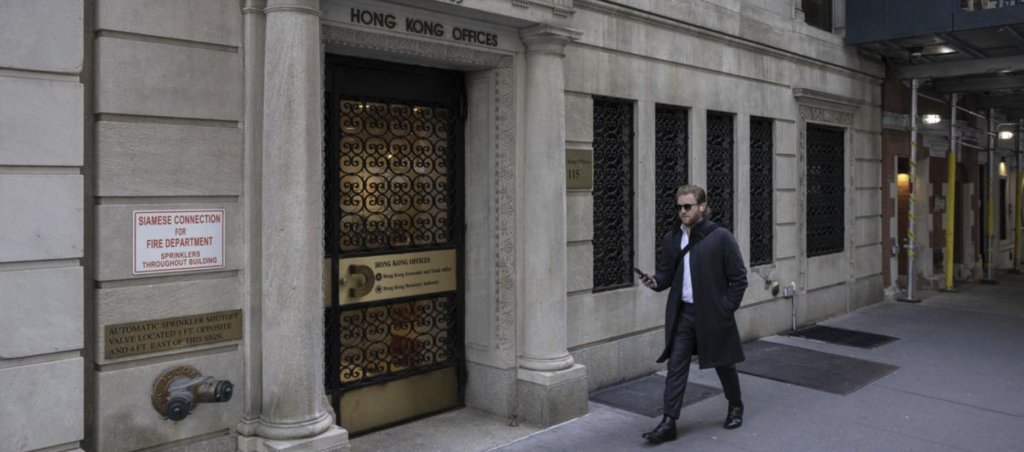Introduction:
A senior Chinese official has sharply criticized recent U.S. trade policies, alleging that tariffs imposed by Washington are designed to “take away Hong Kong’s life” by undermining its economic autonomy and global financial standing. The remarks, made during a press briefing in Beijing, escalate tensions amid ongoing U.S.-China trade disputes and reflect growing concerns over Hong Kong’s future as a global hub.

Background: U.S. Tariffs and Hong Kong’s Special Status
Hong Kong, historically granted unique trade privileges under U.S. law due to its “one country, two systems” framework, saw its special status revoked in 2020 following China’s imposition of a national security law. The U.S. cited eroded freedoms as justification, subjecting Hong Kong to the same tariffs and export controls as mainland China. Recent measures, including increased duties on electronics and textiles, have disproportionately impacted Hong Kong’s re-export economy, which relies heavily on trade with the U.S.
The Accusation:
In a fiery statement, the Chinese official accused the U.S. of weaponizing trade policy to destabilize Hong Kong’s economy. “These tariffs are not about fair competition—they are a deliberate attempt to suffocate Hong Kong’s role as an international business gateway,” the official claimed. He argued that the policies aim to isolate the city financially, thereby weakening China’s strategic interests in the region.
Economic Impact on Hong Kong
Data from Hong Kong’s Trade Development Council shows a 12% year-on-year drop in U.S.-bound re-exports since 2022, with sectors like logistics and manufacturing hit hardest. Local businesses report rising operational costs due to tariffs, prompting some firms to relocate to Southeast Asia. Pro-democracy advocates warn that economic pressures could accelerate Beijing’s integration policies, further diluting Hong Kong’s distinct identity.
U.S. Justification and Response
The U.S. Trade Representative has defended the tariffs as a response to unfair trade practices and national security risks posed by China’s governance of Hong Kong. A State Department spokesperson reiterated that the measures “hold China accountable for undermining Hong Kong’s promised freedoms,” denying any intent to target the city’s economy. However, analysts note the dual impact of both penalizing Beijing and squeezing Hong Kong’s commercial viability.
Global Reactions and Market Sentiment
International trade groups have expressed concern over the collateral damage to Hong Kong’s 7.5 million residents. The European Union Chamber of Commerce cautioned that “using trade as a geopolitical tool risks destabilizing global markets.” Meanwhile, Hong Kong’s Hang Seng Index fell 1.8% following the comments, reflecting investor anxiety over prolonged trade hostilities.
Expert Analysis:
Dr. Li Wei, a political economist at Renmin University, suggests the U.S. strategy may backfire. “Hong Kong’s decline as a financial hub could shift power to Shanghai or Singapore, but not necessarily benefit U.S. interests,” he noted. Others highlight potential diplomatic pathways, urging renewed dialogue to de-escalate tensions.
Conclusion:
As U.S.-China relations remain fraught, Hong Kong finds itself caught in the crossfire of punitive tariffs and geopolitical maneuvering. While Beijing vows to safeguard the city’s prosperity, the tangible economic fallout raises questions about the sustainability of its global role. Stakeholders await potential policy adjustments, but for now, the battle over Hong Kong’s “life” intensifies on the trade front.
Disclaimer: This article synthesizes publicly available information and statements up to July 2023. Developments beyond this date may alter the context. Consult primary sources for real-time updates.



